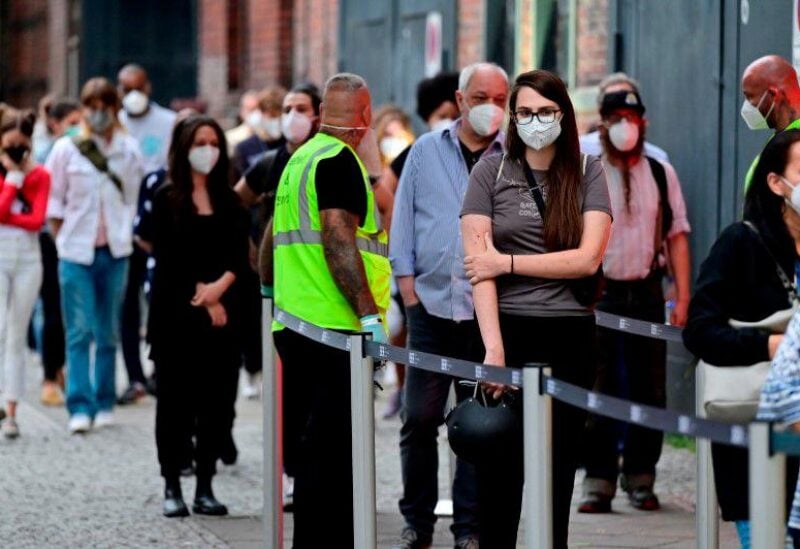
Germany COVID-19
Nationwide restrictions such as mask-wearing and vaccination requirements that were put in place to fight the pandemic in Germany, were lifted on Sunday, despite record-high COVID-19 infection rates.
The move follows Parliamentary approval last week to treat the virus as endemic.
But several German states are keeping most of their rules in place for a further two weeks, as the so-called Freedom Day remains elusive.
What are the rule changes?
German states have agreed a two-week period to remove most of their rules, including compulsory indoor mask wearing.
Bavaria said it will keep mask requirements in place until April 2, as well as earlier rules that limit access to nightclubs, cultural and sporting events, restaurants and cafes.
Most of the other states, including the most populous state of North Rhine-Westphalia, said they’ll also keep the mask requirement, among other basic measures, until next month.
Berlin and Saarland said they’ll keep their current measures in place until March 31.
Despite the lower and upper houses of the Federal Parliament approving the easing of curbs on Friday, German state leaders have criticized the move as happening too soon.
On Sunday, Germany reported 131,792 new virus infections, according to the Robert Koch Institute for infectious diseases.
The 7-day incidence rate across the country is 1,708.7, up from 1,526.8 a week ago, and 1,346.3 a month ago.
The federal government’s defense of its decision is not enough for Bavaria’s Health Minister Klaus Holetschek, who on Sunday warned that a move to end restrictions was irresponsible.
“Instead of a day of freedom, a day of irrationality is looming,” he told Bild am Sonntag newspaper.
The chairman of the German Federation of Trade Unions (DGB) Reiner Hoffmann called for the federal government to reconsider.
“We have record case numbers, and in the fall the situation may once again worsen,” he told the newspapers of the Funke Mediengruppe. “We must not risk the workplace becoming a hotbed of infection again.”
Heinz-Peter Meidinger, president of the German Teachers’ Association, warned that without the mask mandate, schools would become transmission hotspots.
“I hope that all of this doesn’t fall at our feet anytime soon,” he told the Redaktionsnetzwerk Germany (RND).